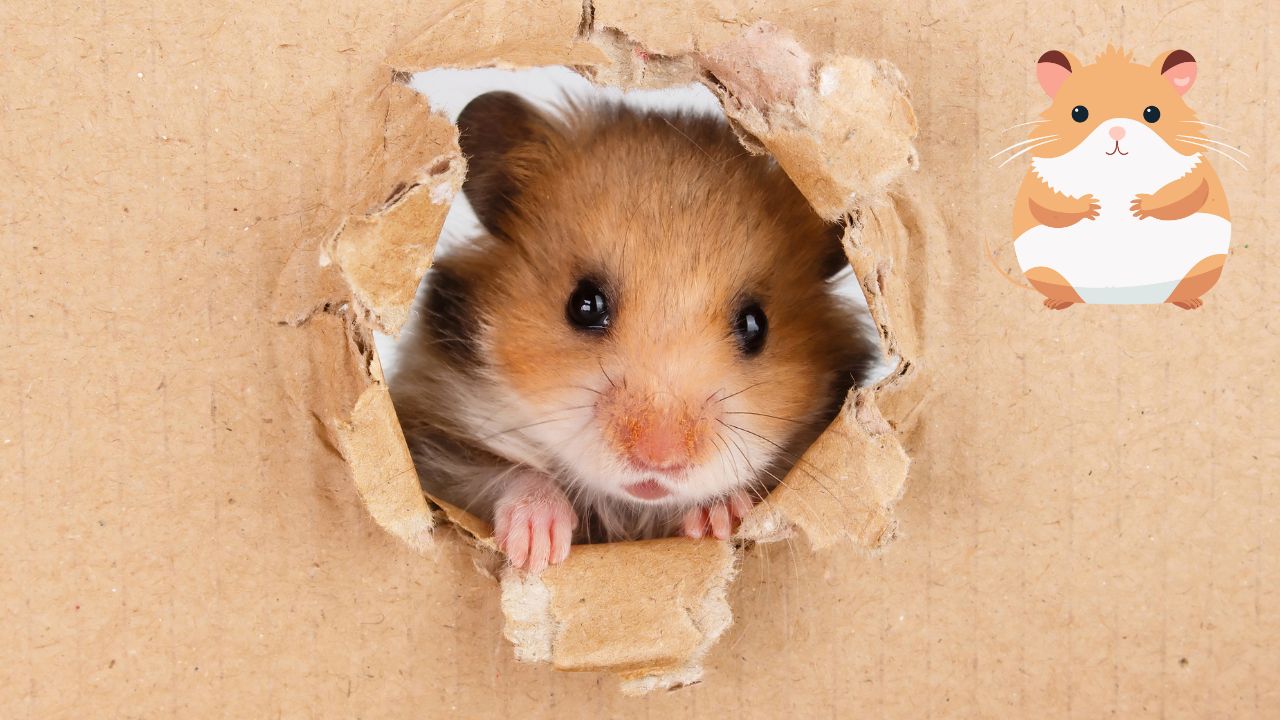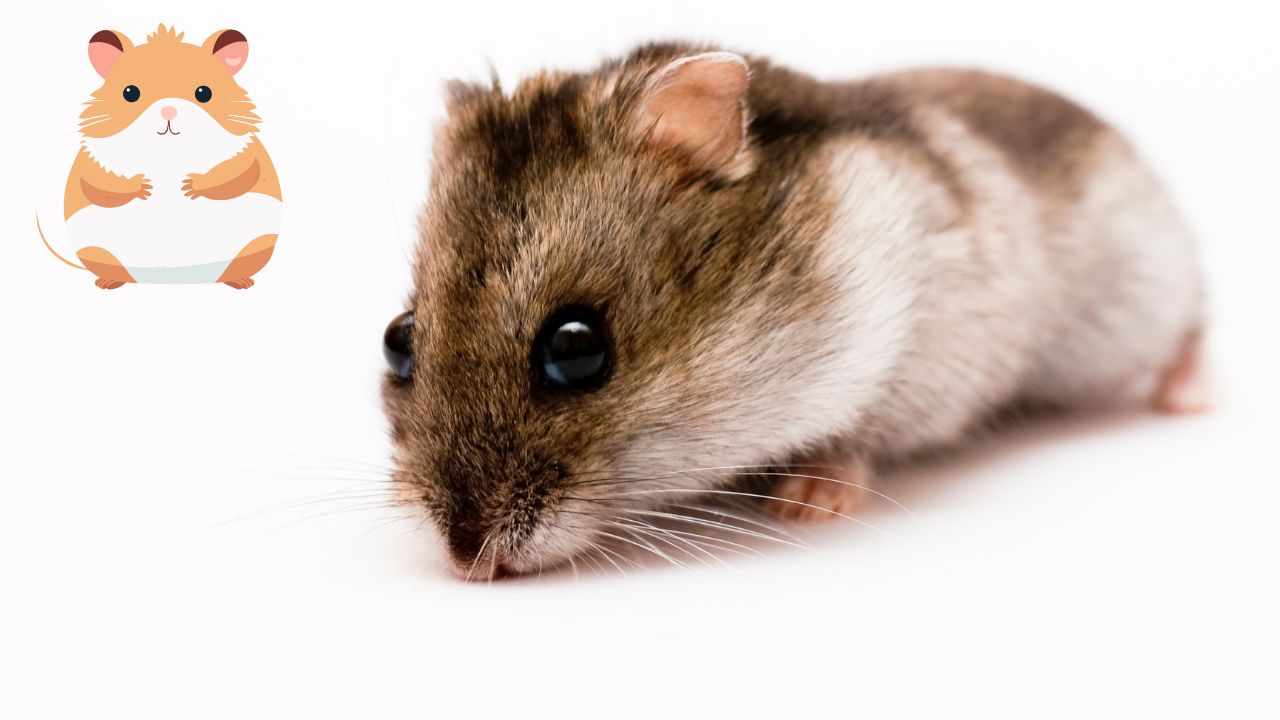Hamsters are popular pets known for their adorable looks and playful personalities. However, prospective owners often wonder: do hamsters smell? This comprehensive guide will delve into this common query and provide actionable insights to help you maintain a fresh and odor-free environment for your beloved furry friend.
Do Hamsters Smell? Debunking the Myth
“Forget the myth of smelly hamsters! While they may have a faint, musky scent, it’s easily managed properly. Just like keeping your home fresh, regular cleaning is key for your hamster’s cage. By understanding what contributes to hamster odor, we can explore some simple yet effective strategies to keep your tiny friend’s habitat smelling delightful.”
Hamsters Themselves Are Odorless

Firstly, clarifying a common misconception about hamsters and their associated smells is crucial. Hamsters, by nature, are virtually odorless creatures. That’s right; these small pets do not produce a significant scent alone. If you notice an unpleasant smell, it’s likely not emanating from the hamster itself but from its surroundings.
The Culprit: Cage Buildup
The primary source of unwanted odor is the hamster’s cage rather than the hamster. A combination of waste buildup, urine (which contains ammonia), and leftover food contributes to what many perceive as ‘hamster odor.’ Understanding this is the first step in addressing and managing the smell effectively.
Waste Buildup and Ammonia
Among the factors contributing to cage odor, waste buildup and ammonia in urine are significant. Ammonia, a byproduct of urine, can produce a solid and irritating smell if not cleaned regularly. That points to the critical role of cage hygiene in odor management.
Absorbent Bedding for Odor Control

Choosing the right bedding is paramount in controlling odors. Absorbent materials such as aspen shavings or recycled paper bedding can significantly reduce the smell by locking in moisture and odor. Avoid using pine or cedar shavings, as these can harm your hamster.
Importance of Cage Cleaning
Maintaining cleanliness within your hamster’s habitat is arguably the most effective strategy for odor control. Regular cleaning routines can drastically minimize unpleasant smells.
- Spot Cleaning Daily: Removing soiled bedding and uneaten food can prevent waste from accumulating and producing odors.
- Full Cage Cleanings Weekly: In addition to daily spot checks, a more thorough cage cleaning, including changing all bedding, should occur weekly. This helps keep ammonia and other odors at bay.
Pheromones: A Natural, Manageable Scent

It’s worth noting that hamsters produce pheromones, natural scents used for communication among animals of the same species. While it’s not offensive to humans, it’s part of their natural behavior. Regular cleaning helps manage these natural scents without causing stress to your pet.
Diet and Unusual Odors
A hamster’s diet can also influence the scent of its habitat. Certain foods may produce more waste or stronger-smelling urine. Monitoring and adjusting your hamster’s diet can help reduce odors. Additionally, unusual odors can sometimes indicate health issues, so it’s essential to consult a veterinarian if you notice any sudden changes in smell.
Freshness for You and Your Hamster
Ensuring your hamster’s clean and fresh environment benefits you and your pet. A clean habitat can prevent health issues related to ammonia exposure and ensure your hamster remains happy and active.
Bonus Tip: Safe Cleaning Products
When cleaning your hamster’s cage, it’s essential to use safe, non-toxic cleaning products. Water and vinegar solutions can effectively clean the cage without the harsh chemicals in many commercial cleaners, ensuring a secure environment for your pet.
Conclusion
In pet ownership, hamsters are undoubtedly a joy to have. They’re not just adorable and easy to care for; keeping their environment odor-free is achievable with the right approach. Understanding that hamsters are not the source of unpleasant odors but rather their living conditions empowers owners to take proactive steps toward maintaining a clean and healthy habitat. You can significantly reduce potential smells by implementing regular cleaning routines, selecting the appropriate bedding, and monitoring your hamster’s diet. Contributes to a more enjoyable living space and ensures your furry companion’s well-being and happiness. Remember, a clean habitat is fundamental to your hamster’s health, so take pride in providing the best care possible. With these guidelines, your journey with your pet hamster will be filled with delightful experiences and memories, minus the worry of unwanted odors.
FAQs
How often should I clean my hamster’s cage to prevent odours?
Spot clean daily and perform a full clean at least once a week.
Can I use scented bedding to improve the smell of the cage?
No, scented bedding can harm your hamster’s respiratory system. Opt for unscented, absorbent materials instead.
Why does my hamster’s cage still smell after cleaning?
You may need to switch to a more absorbent bedding type or review your cleaning routine to ensure it’s thorough enough.
Does my hamster’s diet affect cage odour?
Yes, a balanced diet can result in healthier, less odorous waste.
